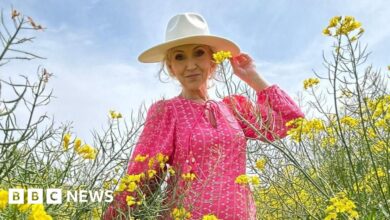13 films to stream from BBC’s online film festival
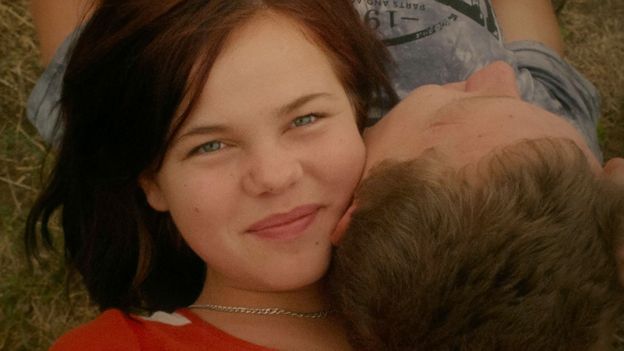
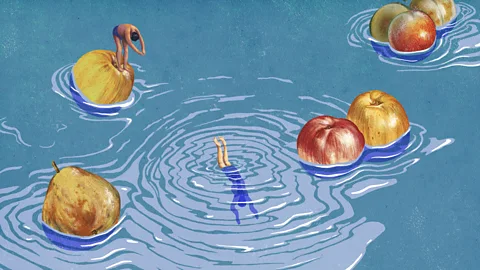
The BBC’s online documentary film festival LongShots returns for a second year with a new motto – the Age of Bloom – and a new format involving 13 film festivals from around the world.
After the success of its first edition, the BBC’s online documentary film festival LongShots returns with a new motto and new format. This year’s theme is Age of Bloom, as we showcase films that make our hearts jump, catch us by surprise and spark fresh ideas.
The new format involves an alliance of 13 international film festivals who nominated 110 films by the most promising filmmakers from around the world. Thirteen of the very best have been selected from that list to be featured in LongShots, but only one will be named the winner by a small jury of revered filmmakers and industry experts. BBC readers will also have the chance to cast their own votes for an audience award from 18-31 August 2021.
These are the 13 films that have been shortlisted as finalists for this year’s LongShots festival. All films are available for direct streaming on the LongShots site at BBC Reel.
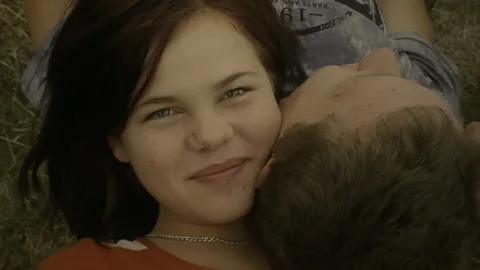 Virginie Surdej
Virginie SurdejBy Anna Eborn
Transnistra invites the viewer to experience a year in the life of a close group of young people in the breakaway republic of Transnistria, located between Ukraine and Moldova. Shot with a handheld 16mm-camera, its warm, informal glow eases the audience into a comfortable nostalgia through which to inhabit the collection of quiet moments that comprise the film’s narrative.
We follow Tanya, 16, and her posse of male friends to their homes, their river swimming spot and the abandoned buildings that have become their sanctuary as they balance their profound affections for one another against a typically teenage penchant to avoid dwelling on anything too serious for too long. Filmmaker Anna Eborn explores their friendship, insecurity, bravado, intimacy, fragility and growth through her dream-like storytelling, emotionally engulfing the viewer as the teens embark on the eternal human journey to understand themselves and the world around them.
Nominated by Eric Hynes, First Look Film Festival, MoMI New York
“It’s one of the reasons I love documentary. A filmmaker embedding herself with a talented group of collaborators in an area that allows me to come into a world I would normally have no access to. Expressing their lives in a way that’s truly accessible.
“Seeing [Tanya, the film’s main subject] navigate certain scenes and certain days, being filmed… I was just a human being watching something all women navigate: taking other people’s feelings in account without first taking your own into account. Seeing that on her face was really, really powerful.”
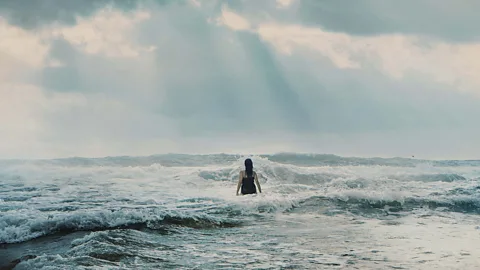 Ricardo Garfias
Ricardo GarfiasBy Sergio Morkin
Maricarmen lives her life with tenacity, fire and a rare hunger to challenge herself in everything she decides to pursue, while being completely blind. In her eponymous film, we follow Maricarmen as she runs a marathon, performs in a chamber orchestra and rock band, teaches music and falls in love – all the while ripping through arguments, jokes and laughter with the people caught in her wake.
As we grow closer to the protagonist, we also meet the source of her fortitude and determination in her mother, who seeks to mend their complicated relationship. The film makes clever use of light, darkness and sound to bring the viewer into Maricarmen’s world, highlighting the subtle sensations that those without sight are more attuned to.
Nominated by Carlos Gutiérrez, Cinema Tropical
“In Latin America, it’s very common that great documentaries don’t reach the international film circuit, and Maricarmen is one of those examples. It’s a wonderful and intricate and delicate portrait that challenges preconceptions of disabilities by offering a very nuanced perspective.”
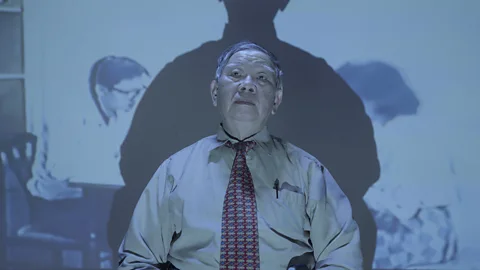 Xin Huang and Ye Bao
Xin Huang and Ye BaoBy Xin Huang and Ye Bao
Back in his home nation of Taiwan, Fang Sir was once a promising filmmaker with accolades that may have propelled him to a successful career. But after emigrating to New York City 30 years ago and leaving behind the limelight, the Fang Sir of today yearns for the artistic fulfilment of his past. Living in New York’s suburbs filled with immigrants from China and Taiwan, and at almost 70 years old, he now finds himself trudging through old age harbouring a haunting spectre of what could have been.
Dream in Silence captures Fang Sir’s transformation from someone consumed by loneliness and regret into a man of action, as he decides to remake his award-winning film with the help of a young film crew, often with comedic results. A complex and contradictory character, Fang Sir rediscovers his voice as the quest to fulfil his end-of-life dream comes into reach.
Nominated by Sierra Chen and Belle Chung, Guangzhou International Documentary Film Festival
“Dream in Silence is made to be read, to persuade, not to grandstand or obfuscate, which grants a larger audience a key to this character’s world, easy to enter, hard to leave. Fang Sir has been staying with me even after the film. We are always reminded of his wisdom and sense of humour.”
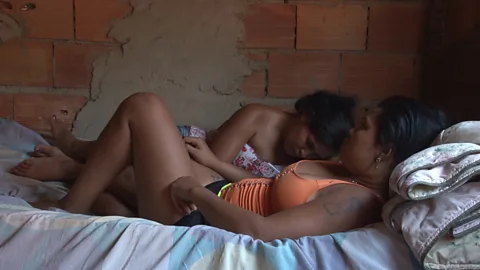 Fernanda de Sena
Fernanda de SenaBy Juliana Antunes
Using an almost exclusively female crew, director Juliana Antunes gains unfettered access to the private conversations that take place between a group of women living in the favela near Belo Horizonte, Brazil. The two main subjects of Baronesa – Andreia, a nail stylist, and Leid, a housewife – meet during their days to offer companionship and advice on navigating life as women, wives and members of a community where insecurity and violence is an ever-present threat.
This exploration of womanhood in the favelas is carried out through the small talk and intimate moments throughout a normal day, alongside quick glimpses into the larger issues that surround the neighbourhood. What we find through the characters’ stories is a new meaning of home, togetherness and the importance of lessons that are passed down through generations.
Nominated by Sung Moon, Jeonju International Film Festival
“There are many documentaries that only observe people and show what exactly happened in this world and tell how things happened without making any changes, hiding the presence of the director and the camera. We, the spectators, became voyeurs of someone else’s life. What makes the difference from this voyeurism to the effort to understand human life through the film is the author’s perspective.
“Baronesa proves this from the opening scenes to the ending of the film when we see changes in the protagonist’s life and the director’s sincere wish and intentions. We are no longer voyeurs, we accompany the director and her protagonist.”
 Alexandra Pianelli
Alexandra PianelliBy Alexandra Pianelli
The Kiosk plants us inside a humble newspaper stand in Paris beside director Alexandra Pianelli and her mother, who owns it – or rather, plants us above their heads. The film is shot with a head-mounted camera, allowing the viewer to embody the shop owner herself, interacting and joking with the regular customers that stop by to chat and buy the day’s paper.
The number of patrons that continue to support print news in an era of increasingly digital coverage is dwindling, and Pianelli’s mother considers retirement an inevitability. But while losing their multigenerational family business, Pianelli and her mother face the change head on with unwavering elegance, creativity and a distinctly Parisian flair.
Nominated by Joana de Sousa, Doclisboa International Film Festival
“The Kiosk is an extremely sensible work of observation. A study of the city, of labour and of community… In two metres of space inside the kiosk, [Pianelli] uses a variety of formats and approaches that expand the walls of the stand and encompass various complexities.
“The entire world floods that little corner, through the dozens of customers, their stories and lives, but also through the major political, social and economic events that influence the kiosk’s existence… The kiosk becomes then a barometer of society, a measuring mechanism of change. This film is not only about media sales or a dying profession, it’s about how people find ways to build communities, to be aware of one another.”
 Miguel Bueno
Miguel BuenoBy Bettina Perut and Iván Osnovikoff
The Kings centres on two canine guardians that watch over the oldest skate park in Santiago, Chile, a place frequented by local children and teenagers as a refuge from their busy, often troubled lives. Over two years, through the eyes of a black Labrador and her dark auburn mutt companion, the film tells the story of the youngster’s struggles and with money, work and family – as well as the joys of skating, jokes and young love.
Directors Bettina Perut and Iván Osnovikoff use the dogs as a lens through which to reveal the skaters’ problems at home, which they share candidly with one another between tricks, eschewing direct footage of the children for audio of their voices. The result is a feat of editing and storytelling that offers a distinctly unique perspective on a global issue through the unlikeliest of characters.
Nominated by Inti Cordera, DocsMX International Documentary Film Festival of Mexico City
“In this space, this skate park, where very young guys and girls are talking about their problems and conflicts with drugs and work, that’s what’s very original about the film… It’s all told by these two dogs as the main witnesses of this community of kids around them.
“These two amazing dogs become almost human. They transmit a message for us humans. And you connect with the dogs as if they were.”
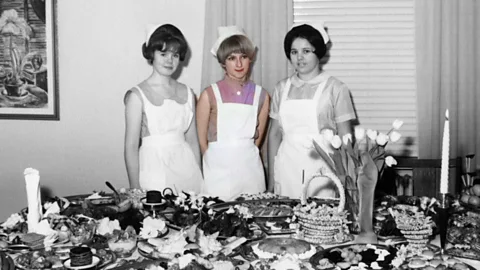 Stefanía Thors
Stefanía ThorsBy Stefanía Thors
The film follows young students at the Reykjavík School of Housewives, which, for 80 years, has taught the skills needed for tending to a home: cleaning, cooking, disposing of food waste, mending clothes and more. Over a semester’s time, the students learn from each other and create bonds to last the rest of their lives, as exemplified by many of their parents and grandparents who attended the school in their youth.
And though the image and responsibilities of a “housewife” have changed drastically and for the better over the years, the school continues to educate its pupils by throwing out the obsolete gender roles associated with the term. Instead, they are given knowledge and experience in self-sufficiency and preservation; skills the longstanding school master believes will serve them outside and inside the home.
Nominated by Hrönn Marinósdóttir, Reykjavik International Film Festival
“The school master, Margrét Dóróthea Sigfúsdóttir, is a great character. She has managed to change the school, but still keep traditions. Just to keep it alive is an achievement. It is about traditions that are disappearing and how it is possible to evolve the same good concepts and meet new challenges in totally different times.”
 Zachary Reese
Zachary ReeseBy Ra’anan Alexandrowicz
Director Ra’anan Alexandrowicz creates a compelling and deeply relevant thought experiment by cataloguing the reactions of several people as they are shown distressing videos of the harshness of Palestinian life under Israeli rule. The film centres on Maia, a young Jewish American woman, who is forced to confront her opinion while she processes difficult images from the occupied West Bank. As she does, viewers experience the same dilemma for themselves: is it possible to change someone’s mind in the digital era?
Nominated by Veton Nurkollari, Dokufest International Documentary and Short Film Festival
“I loved this particular film and think that the idea behind it is very smart, and also smartly executed, albeit with a very simple set up. It shows that seeing is not always believing, and how easy it is nowadays to be manipulated by images and videos, depending where and from whom they come.”
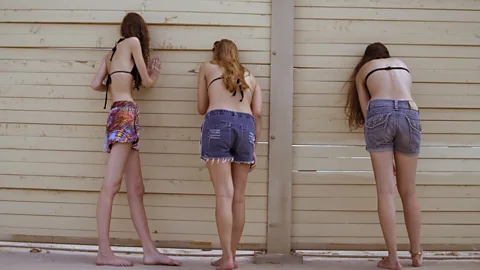 Karin Kainer
Karin KainerBy Karin Kainer
In the secular city of Tel Aviv, a popular beach is open exclusively to ultraorthodox men or women depending on the day, forbidding members of opposing genders to overlap. Kosher Beach allows the viewer to circumvent the rules, granting access to the women’s beach to experience a day of rest, relaxation and renewal alongside them.
Outside the confines of their homes in a nearby city, women temporarily find freedom among their fellow beachgoers. The film offers a contrasting view of the wholly rigid traditions of daily life in ultraorthodox culture, one that sees people set aside most of the things that keep them apart to find commonality and nonconformity, if only for a dip in the sea.
Nominated by Karin Rywkind Segal, Docaviv International Documentary Film Festival
“One of the film’s strengths is that it displays a rich range of women from young to old which invite us to their world. This non-judgmental film deals with serious matters but is also full of humour, a rarity in documentaries, and the filmmaker has a very strong eye for catching unforgettable characters and situations.”
 Manuel Abramovich
Manuel AbramovichBy Manuel Abramovich
Soldier follows 19-year-old Juan José González as he joins the army, becoming one of its drummers. The Argentinian military, its surrounding history steeped in political corruption and dictatorships, operates today in a country without wars. Its leaders nonetheless enforce a ferocious regimen of drills, marches and training for new recruits.
Director Manuel Abramovich offers a raw, honest look into the first few months of González’s induction into the ranks as he’s pushed to his physical limits and taught the correct way to play his humble instrument. As his officers attempt to stifle the blooming individuality of a man of this age within the rigid army environment, González must find the boundary between who he truly is and the nameless soldier he’s meant to become.
Nominated by Cecilia Barrionuevo, Mar del Plata International Film Festival
“Manuel Abramovich is a director whose gaze is attentive and curious. In Soldier, under a personal aesthetic system of respect and proximity to his protagonists, he explores the present with lucidity, tensing the limits between documentary and fiction.
“It is a portrait that achieves its universality with local colour, recording the journey of a young soldier who enlists in the army without too deep-rooted convictions, revealing the complex web of the security forces, their routines and myths.”
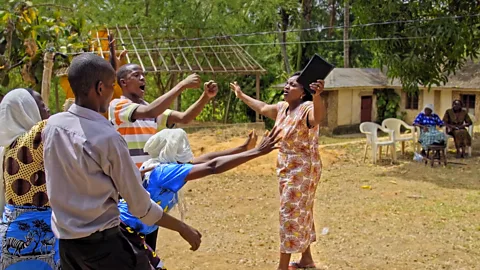 Circle & Square Productions
Circle & Square ProductionsBy Maia Lekow and Christopher King
When Margaret Kamango, who is in her mid-90s, is accused of practicing witchcraft by someone in her own household, a Kenyan family becomes locked in a crisis of fear, blame and judgement. Kamango is one of many elderly Kenyans who find themselves persecuted or even killed under such suspicions.
The dramatic family conflict sees its women members split in support of Kamango, who proudly stands her ground throughout the film, while many of the men lead the opposition. Through the husband-and-wife directors’ personal attention paid to the characters on each side of the fence, the motives behind the accusations and vitriol reveal themselves to be based in much more than superstition.
Nominated by Mandisa Zitha, Encounters South Africa
“The Letter plays like a movie, but provides us with great intimacy into the characters against the backdrop of the beautifully shot landscape. An interesting perspective of how macro influences of colonisation and religion are playing out in the small rural community and personal lives of people… with devasting outcomes.
“International viewers accustomed to issue-based African films, will be moved by the insight into these issues through the personal story instead, through the character’s lived experiences.”
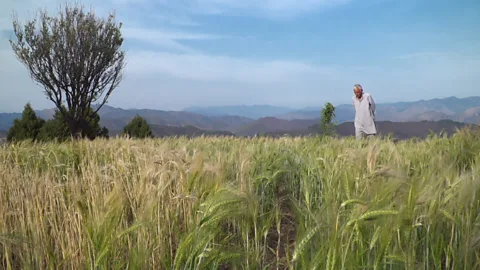 Nirmal Chander
Nirmal ChanderBy Nirmal Chander
More than 7,000 abandoned villages surround the Moti Bagh farm in the Himalayan north of India, remnants of the thousands of former farmers who have migrated en masse to find work elsewhere. Vidyadutt Sharma, Moti Bagh’s caretaker and a poet in his own right, is the centrepiece of the film that seeks to capture the gradual pace and joyful solitude on one of Uttarakhand’s remaining farmsteads.
Sharma voices his own poetry in the field as he labours through monsoons, frost and bitter heat, on a central quest to produce a gargantuan radish and break his previous year’s weight record. The breathtaking footage of the bucolic area and portrayal of Sharma’s fulfilment in his determination to live a simple life do well to aid the viewer in understanding in part why, despite the struggles of the region’s farmers, some have decided to stay.
Nominated by Bina Paul, International Film Festival of Kerala
“It is this one man sitting in his little village who is trying to keep, or nurture, a system. And it’s from this single kind of individual that you reach a universal story. This could be happening in South America or Africa. There’s a universal appeal. It’s not about only an Indian farmer, but it’s about a farmer today in the world. It resonates beyond.”
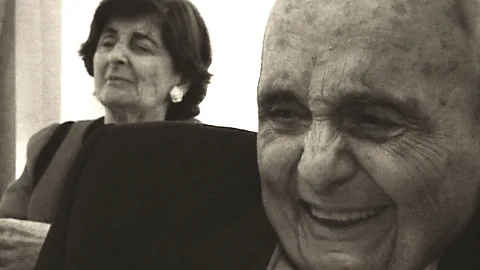 Cyril Aris
Cyril ArisBy Cyril Aris
The Swing details the devastating result of one of the most difficult decisions a family can make: to withhold news of the death of a loved one from someone who cannot bear to know. Antoine Aris, 90, resides in bed with a heart working at a quarter of its capacity, and upon the sudden death of his adult daughter while away in Argentina, his wife Viviane fears that telling him might mean losing him as well.
Over the course of the film, we see Viviane stomach the pain of her daughter’s absence in secret, grieving in silence, all while creating a lie to keep her husband in the dark. Filmed without frills in director Cyril Aris’s Beirut home – the grandson of Antoine and Viviane – The Swing explores the weight of such a decision on the spirit of a family in mourning, and the redeeming power of love above the crudity of truth.
Nominated by Intishal al Timimi, El Gouna Film Festival
“It’s universal. All of the small stories, the very specific stories, you can see the similarities of them anywhere in the world. Each person can relate, generation to generation.”
Source link




